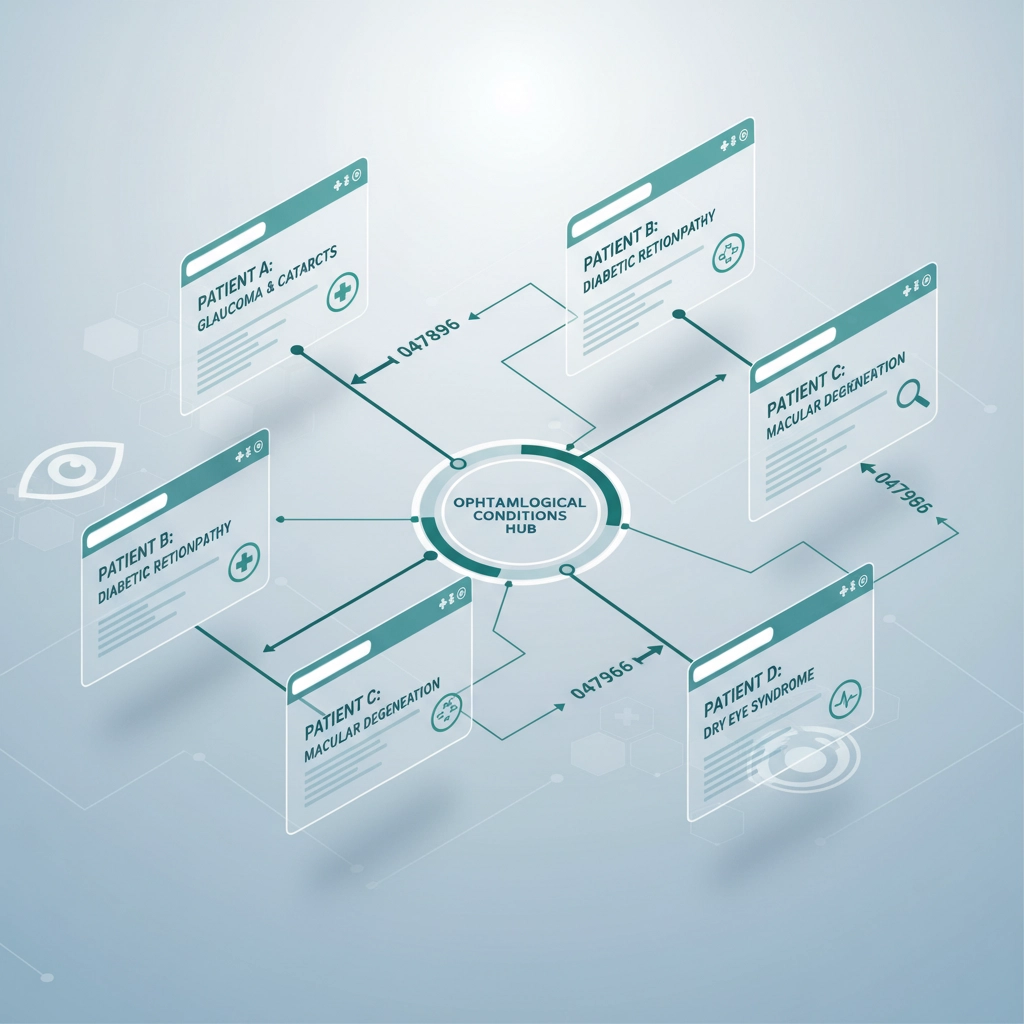
24 Ophthalmology OKAPs & Board Exam High Yield Strategies to Succeed
Sep 13, 2025Struggling For Board Exam Confidence? Here are 24 High Yield Strategies That Actually Work

Let's be real here, if you're reading this at 2 AM with your third cup of coffee, surrounded by BCSC books that are judging you harder than an attending during morning rounds, we see you. We've been exactly where you are right now, questioning whether you'll ever feel ready for boards, wondering if everyone else has some secret study formula you missed in orientation.
The truth? There's no magic bullet, but there are proven strategies that can transform your preparation from a stress-fueled marathon into a strategic, confidence-building journey. We're about to dive into 50+ evidence-based techniques that actually work, not just theory from someone who's never touched an indirect ophthalmoscope.
Foundation Techniques: Building Your Study Architecture
The SQ3R Method isn't just another acronym to memorize (trust us, you've got enough of those). This systematic approach, Survey, Question, Read, Recite, Review, turns passive reading into active learning. When you're tackling that intimidating retina chapter, survey the headings first, question what you expect to learn, read actively while seeking answers, recite key concepts aloud (yes, your roommates will think you're weird), and review to cement understanding.
Here's where Clear Vision Education steps into the spotlight: our video lectures are designed around this exact principle. Instead of just watching passively, our interactive format naturally guides you through questioning and active engagement with each concept.
Retrieval Practice is your secret weapon against the "I know I studied this" panic during exams. Rather than re-reading notes for the hundredth time, force your brain to actively recall information. Create flashcards where you write answers before flipping, take practice quizzes without looking up answers immediately, and explain concepts to anyone willing to listen (your cat counts).

Spaced Practice fights the cramming demon we all battle. Study material today, review tomorrow, again in three days, then weekly. Your brain works harder when it almost forgets something, creating stronger neural pathways. It's like strength training for your memory: painful in the moment, powerful in results.
Active Learning Arsenal: Beyond Highlighting Everything
The PQ4R Method takes SQ3R up a notch with Preview, Question, Read, Reflect, Recite, and Review. When approaching complex topics like glaucoma management, preview the chapter structure, question your current understanding, read section by section, reflect on whether you've answered your questions, recite summaries, and review gaps.
Mind Mapping transforms overwhelming topics into visual masterpieces. Draw connections between concepts, use colors and symbols, and create your own visual language. When studying uveal melanoma, map out risk factors, diagnostic approaches, treatment options, and prognosis: suddenly the big picture becomes clearer.
Teaching Others might be the most underutilized technique in medicine. Grab a study partner, explain diabetic retinopathy stages to your non-medical friends, or create video explanations for yourself. If you can't explain it simply, you don't understand it well enough. Period.
Confidence-Building Psychological Techniques
Writing Down Worries isn't touchy-feely nonsense: it's research-backed performance enhancement. University of Chicago studies show that spending 10 minutes writing about exam anxieties before studying or testing improves performance significantly. Dump those "what if I fail" thoughts onto paper and watch them lose their power over you.
Simulation Practice builds familiarity breeds confidence. Use our comprehensive quiz packages to simulate actual exam conditions: timed sessions, similar question formats, and realistic difficulty levels. When exam day arrives, it'll feel like just another practice session.
Positive Self-Talk Reframing changes your internal narrative from "I'm terrible at this" to "I'm learning and improving." Replace catastrophic thinking with growth-oriented language. Instead of "I'll never understand retinal detachment repair," try "I'm building my understanding of retinal detachment repair."
Memory Enhancement Strategies
The Memory Palace Technique turns your spatial memory into a filing system. Associate complex ophthalmology concepts with familiar locations in your home. Walk through your apartment mentally, placing different types of cataracts in each room. It sounds bizarre but works incredibly well for detailed classifications.
Acronym Creation helps organize information into memorable chunks. Create your own acronyms for differential diagnoses, surgical steps, or treatment protocols. Make them funny or inappropriate if needed: your brain remembers emotional content better.
Visual Association connects abstract concepts to concrete images. When studying infectious diseases, create vivid mental pictures linking pathogens to their presentations. The weirder the association, the better you'll remember it.

High-Yield Time Management Techniques
The Pomodoro Technique optimizes focus through structured intervals. Study for 25 minutes, break for 5, repeat four cycles, then take a longer break. Use breaks strategically: step outside, hydrate, stretch. Your brain consolidates information during rest periods.
Time-blocking assigns specific subjects to specific time slots. Monday mornings for cornea, Tuesday evenings for retina, consistent scheduling creates routine and reduces decision fatigue about what to study when.
Priority Matrix categorizes topics by importance and your current mastery level. High-importance, low-mastery topics get prime study time. Don't spend hours perfecting subjects you already understand well.
Technology-Enhanced Learning
Spaced Repetition Software like Anki automates the spacing intervals we mentioned earlier. Input information once, let algorithms determine optimal review timing. Our digital flashcard integration makes this even more seamless.
Video Speed Adjustment maximizes efficiency without sacrificing comprehension. Watch familiar content at 1.5x speed, slow down for complex new material. Our platform allows seamless speed control so you can customize learning pace.
Multi-Modal Learning engages different senses simultaneously. Read about surgical techniques while watching videos and taking notes. The more pathways to the same information, the stronger your retention.

Test-Taking Strategy Mastery
Question Analysis breaks down exam questions systematically. Identify what's really being asked, eliminate obviously wrong answers, and use clinical reasoning rather than pattern recognition alone.
Strategic Guessing when elimination doesn't get you to one answer. In ophthalmology boards, certain answer patterns appear more frequently: understanding these probabilities improves educated guessing.
Energy Management during long exams requires planning. Bring appropriate snacks, plan bathroom breaks, and know your optimal caffeine timing. Physical comfort directly impacts mental performance.
Advanced Synthesis Techniques
Case-Based Learning connects theoretical knowledge to clinical reality. Work through complex cases that require integrating multiple concepts. Our case-based modules are designed exactly for this type of synthesis practice.
Cross-Topic Integration identifies connections between different ophthalmology subspecialties. How does diabetes affect every part of the eye? These connections appear frequently on boards and in clinical practice.
Evidence-Based Review stays current with latest research and guidelines. Board exams increasingly include recent developments. Regular journal reviews and guideline updates keep you current.

Your Strategic Implementation Plan
Start implementing these techniques systematically rather than trying everything at once. Choose 5-7 methods that resonate with your learning style and current challenges. Build consistency before adding complexity.
Week 1-2: Establish foundational techniques (SQ3R, retrieval practice, spaced practice)
Week 3-4: Add confidence-building strategies (worry writing, simulation practice)
Week 5-6: Incorporate advanced methods (memory palaces, synthesis techniques)
Track what works for you specifically. Not every technique suits every learner, and that's perfectly fine. The goal is building a personalized system that maximizes both learning and confidence.
Remember, board preparation isn't about perfection: it's about competence with confidence. These evidence-based techniques, combined with quality educational resources, create a foundation for success that extends far beyond any single exam.
We're not just another education platform trying to sell you something. We're ophthalmologists who've walked this path, understand these struggles intimately, and built Clear Vision Education to be the resource we wished we'd had during our own board preparation journey.
Your Next Steps
Ready to transform your study approach from scattered to strategic? Start with our comprehensive video lecture series that integrates many of these techniques naturally into the learning process. Our quiz packages provide the retrieval practice and spaced repetition your brain needs, while our community connects you with peers navigating the same challenges.
The future of your ophthalmology career starts with how you prepare today. These techniques work, but only if you implement them consistently. Your success is our success, and we're here to support every step of your journey.
Ready to revolutionize your board prep? Explore our comprehensive learning platform and discover why thousands of ophthalmology residents trust Clear Vision Education for their board preparation success.
Key Takeaway: Effective board preparation combines proven study techniques with strategic implementation and quality resources. Start with foundational methods, build confidence through practice, and remember that consistent application beats perfect planning every time.
#OphthalmologyBoards #MedicalEducation #BoardPrep #OphthalmologyResident #StudyTechniques #MedicalTraining #ClearVisionEducation #OKAP #BoardExamPrep #OphthalmologyEducation #MedicalLearning #ResidentLife
Keep your eyes on the prize!
Free content, announcements, and promotions delivered in the blink of an eye - straight to your inbox.
Free content, promotions, and terrible eye puns delivered straight to your inbox.
We hate SPAM. We will never sell your information, for any reason.

